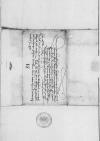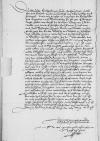Wie wir ÿm zoge uf angesatzte Royal Prussia (Prussia Regalis), region, part of Prussia annexed to the Kingdom of Poland in 1466 under the provisions of the Second Peace of Thorn⌊dis koniglichen ortsRoyal Prussia (Prussia Regalis), region, part of Prussia annexed to the Kingdom of Poland in 1466 under the provisions of the Second Peace of Thorn⌋ tagefart nach Marienburg (Malbork), town and castle in northern Poland, Pomeranian Voivodeship, on the Nogat river, a branch of the Vistula at its delta, the capital of the Grand Masters of the Teutonic Order in Prussia (1309-1457), a voivodeship capital in Royal Prussia, which belonged to the Kingdom of Poland (1466-1772). Marienburg (taking turns with Graudenz (Grudziądz)) was the venue for the Provincial Diets of Royal Prussia, which were chaired by the bishop of Ermland (Warmia)⌊MarienburgMarienburg (Malbork), town and castle in northern Poland, Pomeranian Voivodeship, on the Nogat river, a branch of the Vistula at its delta, the capital of the Grand Masters of the Teutonic Order in Prussia (1309-1457), a voivodeship capital in Royal Prussia, which belonged to the Kingdom of Poland (1466-1772). Marienburg (taking turns with Graudenz (Grudziądz)) was the venue for the Provincial Diets of Royal Prussia, which were chaired by the bishop of Ermland (Warmia)⌋ hie her gen Elbing (Elbląg), city in northern Poland, Pomerania, on the Vistula Lagoon, one of the three Great Prussian Cities (beside Gdańsk (Danzig) and Thorn (Toruń)) which had representatives in the Prussian Council; member of the Hanseatic League⌊ElbingElbing (Elbląg), city in northern Poland, Pomerania, on the Vistula Lagoon, one of the three Great Prussian Cities (beside Gdańsk (Danzig) and Thorn (Toruń)) which had representatives in the Prussian Council; member of the Hanseatic League⌋ gelangt, / haben uns bericht die erbarn Georg Gelwalt ⌊Georg von GelenwaldeGeorg Gelwalt ⌋ / mit seiner ehelichen hausfrawen Cathrina von Dieben ⌊CathrinenCathrina von Dieben ⌋ / und irer schwester, jungfer Anna von Dieben ⌊Annen von DiebenAnna von Dieben ⌋, / anzeÿgende, / wie der erbar Melcher von Dieben ⌊Melcher von DiebenMelcher von Dieben ⌋, ir schwager und bruder, inen ir veterlich und mutterlich erbteil in dorffern, / mulhen, / sehen, / zinsen, / scharwercken und andern nutzungen bisher ins zehende jar, / vilmal derhalben angesprochen, / auch tageleistung von E(wer) F(urstlichen) D(urchlauch)t angenommen, / mut willig vorhelt, / gebraucht und in sein selbst allein nutz wendet, / welchs, / unsers achtens, / dergestalt wider billigheit und recht, / auch widder bruderliche, blutvorwante liebe und pflicht von im geschicht. / Dieweil wir dan obgedachtem Georg Gelwalt ⌊Georgen von GelwaltGeorg Gelwalt ⌋, / seiner Cathrina von Dieben ⌊hausfrawenCathrina von Dieben ⌋ und irer Anna von Dieben ⌊schwesterAnna von Dieben ⌋ der jungfern / mit sonderer gunst geneigt / und dis ir untreglich beschwer bewogen, / hab wir uns nicht mugen, / aus christlichem mit leiden, / enthalten E(wer) F(urstlichen) D(urchlauch)t, / die wir zur gerechtigkeit ÿderm zu pflegen willig, auch begirig erkennen, / mit diesem unserm bitlichen schreiben zuersuchen, / freuntlich und mit vleiss bittende, / wolde sich nicht beschweren, / diese sache ane weitern vorzog vor sich zu kommen lassen / und gnediglich zuvorhoren, / domit das clagende teill mit der volwachsnen jungfern / ane weiter muhe, / kost, / zerung und ufhalten / zu yrem vaterlichen und mutterlichem erblichen anfalh / mit dem, das dorzu gehorig, / mocht kommen und geniessen, / wie wir uns dan zu E(wer) F(urstlichen) D(urchlauch)t, die aus furstlicher hocher tugent von sich selbst darzu geneigt, / gentzlich wollen vorsehen / und solchs umb E(wer) F(urstlichen) D(urchlauch)t freuntlich und williglich beschulden und vordienen. /
 GStA PK, HBA, C1 No 673, 2 unnumbered
GStA PK, HBA, C1 No 673, 2 unnumbered  GStA PK, HBA, C1 No 673, 1 unnumbered
GStA PK, HBA, C1 No 673, 1 unnumbered 
